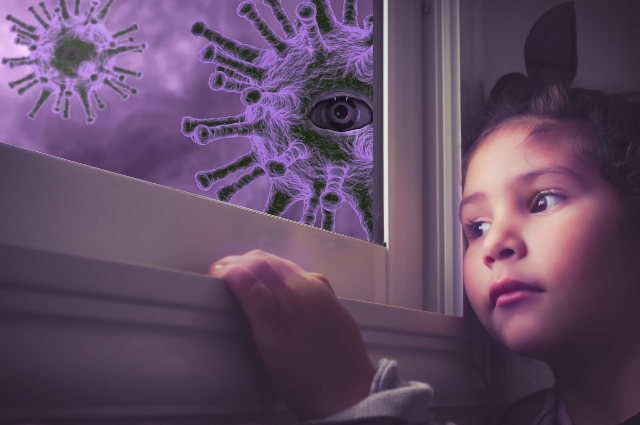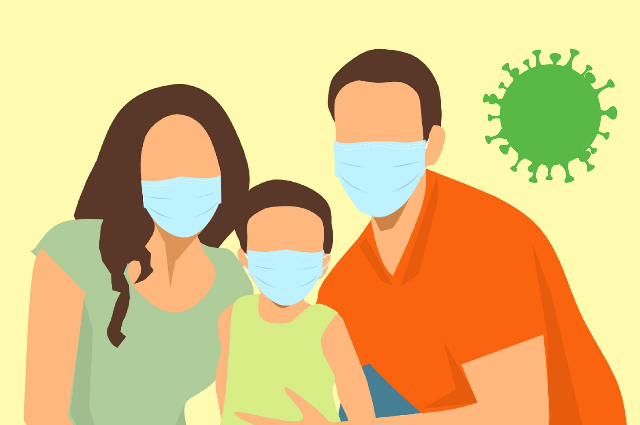
While the covid-19 outbreak has led to philosophical questions about survival, humanity, and the future, the changes and the chaos that it brought in the lives of people have been hard to cope up with. The spread of the deadly invisible enemy has taken a huge toll on citizens’ mental health due to the forced lockdown in the country. It has led scientists, health officials, and government to search for a cure but, a question that is often ignored is, how will we cope up with the “mental health crisis”?
Even in the matter of pandemic, our society stands divided. According to one set of people, the moment we stop taking precautions, there will be an exponential rise in the number of covid cases in the following few days itself, clearly indicating that COVID is not yet over. There’s another group that believes that the third wave of COVID which was suspected to come in October but didn’t, meant that the pandemic was over and they can roam around freely, go on vacations, chill out with friends in theatres, malls, pubs, etc.
But by any chance, unfortunately, if the people putting their faith in the second school of thought do get exposed to the virus and carry it back to their homes, to their parents, and the elderly, the aftermath could be tragic, to say the least. Not only the suffering, but the mental trauma after it’s all said and done would make the ones affected fearful to an extent to even socialize with their own relatives, the idea of meeting people would send chills down their spine. We need to understand this quote deeply “Prevention is better than Cure”.
These are topsy turvy times. For us, just food, water, shelter, and good health of our family seems MOST IMPORTANT, everything else is a bonus that I bow my head in gratitude for. But that which we call “Basic” is not so basic for everyone. There are many who still struggle for what we consider basic and treat them as luxuries.
Our elderly who were being prescribed social interaction for emotional stability are now struggling with new levels of loneliness and helplessness. As people grow old, routine becomes important, and any disruption in their routine leads to anxiety.
Loneliness can affect anyone, but the worst would be on a person living alone miles away from home, forced to stay locked down for weeks. For people with dysfunctional family dynamics such as an abusive partner or domineering parents, staying at home could trigger anxiety attacks.
The isolation and fear in the lockdown were driving an escalating nervousness, especially among those with pre-existing conditions like depression and OCD (Obsessive-compulsive disorder). There is proof of a range of psychological conditions after previous pandemics, from post-traumatic stress symptoms to anger, insomnia, and emotional exhaustion. And the same has continued after the Covid pandemic too.
What can be done to overcome all of this?
There’s no mystery, we must encourage people to be rational in their response, rather than panic. NIMHANS, Bangalore has set up helpline numbers to tele-counsel people in quarantine, and those traumatised with the various affects of the virus.
Doctors also suggest maintaining a personal Journal, which allows you to identify patterns and triggers to help you overcome them and acts as an emotional release or listening ear, so your feelings don’t build up. Journaling, by writing in a diary, mobiles, or any other means, can also improve your self-talk and self-image, acting as wonder in healing for mental health.
Take care of your primary caregivers i.e., your Family. Laugh, share, clear misunderstandings, develop healthier bonds, discuss about life and dreams, take a trip down the memory lane to feel nostalgic, and stay connected more via digital platforms.

Pray to God to end the suffering, for those losing their lives without their families beside them, for less fortunate and needy who are uncertain about their jobs and future, for healthcare professionals & police who are working tirelessly and bravely to protect us. The government has passed the Ordinance Law, giving importance to the healthcare workers and their protection.
Avoid information overload from social media, develop a new hobby, do what you couldn’t due to your hectic schedule, be busy with activities, play games, engage in reading books, music, dance, and movies. Do physical activity, maintain a sleep-wake cycle to keep your immune system boosted. Cook for your loved ones, help your parents in household chores. Focus on positive news like the people who recovered from the virus- to get hope.
Help the ones who cannot afford shelter, make groups and donate for social causes, raise an adequate amount of money to at least feed them meals two times a day to everyone near you who are not so fortunate to be able to get for themselves.
Buy things from local vendors instead of malls in this Diwali time, they don’t want to become rich, all they want is to fill the stomachs of their family with their daily earning and help them so that their kids can also celebrate the festival of lights. Give some bonus salary to your milkman, security guard, driver, maid and take a glimpse of happiness of their faces, it will be the best gift for them and for yourself too.
Continue wearing masks, sanitize your hands and articles often, wash your hands frequently, especially before touching your face, wear gloves while going out and maintain distance with symptomatic and suspected individuals. The more precautions we take, the safer we are. Nothing happens as we expect in these hard times, anything can happen at any time, and we need to ensure full safety from our sides to reduce our guilt and regret later on.
Spread Happiness and live your life to the fullest in every situation.
Take this pandemic as an opportunity.
The earth is recuperating and so can we.
